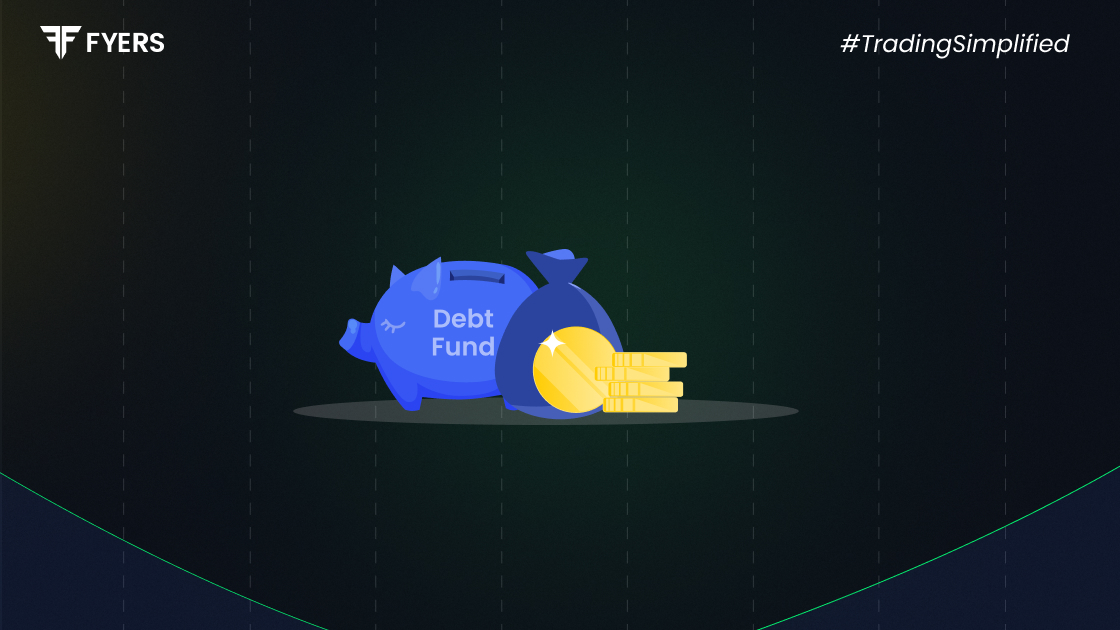

 21 Jul, 2025
21 Jul, 2025
 4 mins read
4 mins read

When it comes to investing, not everyone is looking for high-risk, high-reward options. For many, safety, stability, and steady returns are the priority. That’s where debt funds come in. They’re a popular alternative to fixed deposits and savings accounts, offering better returns with relatively lower risk.
So, what are debt funds, how do they work, and are they right for you? Let’s break it down.
In simple terms, a debt fund is a type of mutual fund that puts your money into fixed-income instruments. These include government bonds, corporate bonds, treasury bills, and commercial papers. Instead of buying stocks, a debt fund lends your money to companies or the government and earns interest in return.
Think of it as a way to earn steady income without exposing your money to big market swings.
Different types of debt funds cater to different financial goals and timeframes. Here are the most common types of debt funds in India:
|
Type of Debt Fund |
Investment Focus |
Ideal For |
|---|---|---|
|
Liquid Funds |
Maturity up to 91 days |
Parking idle money for short-term needs |
|
Ultra Short Duration |
Maturity of 3–6 months |
Low-risk, short-term investments |
|
Short Duration |
Maturity of 1–3 years |
Stable returns over the medium term |
|
Medium Duration |
Maturity of 3–4 years |
Balanced approach to risk and reward |
|
Long Duration |
Maturity of over 7 years |
Long-term, fixed-income investments |
|
Gilt Funds |
Government securities only |
Very low-risk investors |
|
Credit Risk Funds |
Lower-rated corporate bonds |
Higher-risk takers seeking higher returns |
|
Fixed Maturity Plans |
Closed-ended, fixed-term investments |
Investors seeking predictable returns |
There are several benefits of debt funds that make them a good option for conservative investors:
Lower Volatility: They don’t react as sharply to market movements as equity funds do.
Regular Income: Designed to generate steady interest-based returns.
Liquidity: Most debt funds let you withdraw easily (except FMPs).
Diversification: Spread your investment across many different fixed-income securities.
Tax Efficiency: Long-term investments in debt funds may be more tax-efficient than traditional deposits.
Although they’re generally safer than equity investments, debt funds do carry some risks in debt funds:
Interest Rate Risk: When market interest rates rise, bond prices fall - which can reduce returns.
Credit Risk: Default by an issuer can hurt the fund’s NAV.
Liquidity Risk: In market downturns, fund managers may struggle to sell bonds.
Reinvestment Risk: If interest rates drop, reinvested funds may earn less.
Being aware of these risks helps you choose the right fund for your goals.
Wondering who should invest in debt funds? These funds are ideal for:
Conservative investors who prefer stability over high returns.
People saving for short- to medium-term goals - like a vacation, emergency fund, or wedding.
Retirees looking for capital preservation and regular income.
Investors looking to balance their equity-heavy portfolios with low-risk assets.
Investing in debt funds is simple and can be done through several channels:
Mutual fund websites or apps: Direct plans are available through the fund house’s website.
Online platforms: Third-party aggregators and brokers offer easy access to multiple debt funds.
Through financial advisors: If you prefer guided investing, advisors can help you choose the right fund.
Via bank branches: Many banks offer mutual fund services to their customers.
Your investment horizon
Risk tolerance
Return expectations
Exit load and expense ratio
Credit quality of the portfolio
Always read the fund’s scheme information document (SID) and consult a financial advisor if needed.
Let’s update the debt fund taxation part with the latest regulations:
STCG (Short-Term Capital Gains)
Units held for up to 24 months (if bought before 1 Apr 2023) or any unit purchased on or after 1 Apr 2023 are taxed at your income tax slab rate
LTCG (Long-Term Capital Gains)
Pre–1 Apr 2023 units:
Sold before 23 Jul 2024 with ≥36 months holding - taxed at 20% with indexation
Sold on/after 23 Jul 2024 with ≥24 months holding - taxed at 12.5% (flat, without indexation)
Units purchased on/after 1 Apr 2023:
All are taxed as short-term capital gains at slab rate - no LTCG benefit
Now taxable as per income slab, with 10% TDS if over ₹5,000 annually
Debt funds offer a solid mix of stability, flexibility, and potential tax efficiency - especially if you got in before April 2023. Recent tax changes mean it's more important than ever to time your investments and redemptions carefully. Always match your choices to your goals, risk tolerance, and when you need the money.
Debt funds are mutual funds that invest in fixed-income assets like bonds to provide regular interest returns and preserve capital.
Yes, generally. They are less volatile and better for conservative investors prioritising stability.
No, although they are comparatively stable, returns depend on interest rates and issuer performance.
You can start with as little as ₹500 for most debt funds.
Calculate your Net P&L after deducting all the charges like Tax, Brokerage, etc.
Find your required margin.
Calculate the average price you paid for a stock and determine your total cost.
Estimate your investment growth. Calculate potential returns on one-time investments.
Forecast your investment returns. Understand potential growth with regular contributions.